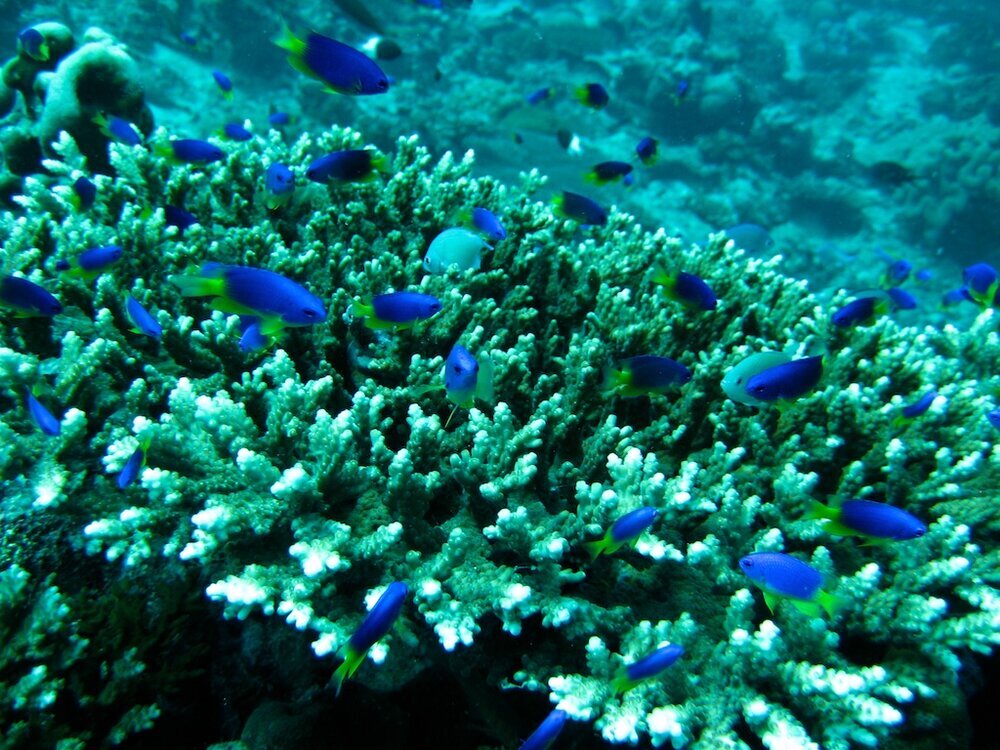Scuba Diving In Africa
This blog post was written by Jason Goldberg, the owner and training director of Accel Scuba in Westchester.
So, you’re considering taking the trip of a lifetime to Africa with Epic Road. Undoubtedly, you’re intrigued by the gorgeous landscapes, wildlife and cultures. However, don’t forget that several locations in Africa also provide the opportunity for additional exploration underwater. Scuba diving in Africa, specifically in Mozambique, Zanzibar and the Seychelles, is some of the best in the world with relatively easy access to vast sea-life and crystal clear waters.
Scuba diving in Mozambique you are likely to encounter large sea life, including whale sharks and manta rays. As the largest marine protected area on the African continent, over 2,000 species of beautiful reef fish and five of the ocean’s seven marine turtles can be found in these waters. There are dive sites that cater to beginner and advanced divers alike. Visibility is generally decent, but can be impacted by tides and current. Water temperatures range from 75-82oF year-round. Divers seeking to encounter whale sharks and mantas must visit the village of Tofo – the ‘whale shark mecca of the world’ with manta reef a short boat ride away. Divers seeking a more serene experience of reef diving should consider visiting one of the many islands of Mozambique.
Zanzibar is home to Mnemba Atoll which is known to divers as the tropical fish capital of East Africa. With warm water temperatures hovering around 80oF year-round, and visibility consistently at or over 100-feet, Zanzibar is a tropical diver’s paradise. This magical destination offers wall diving, endless reefs, and historical wrecks. This is one location where there is something for every skill level of diver. The conditions on the west coast tend to be calm and suited to beginner divers, and the currents on the east coast provide challenge for advanced divers. Scuba divers in Zanzibar may encounter blue spotted rays, moray eels, octopus, green turtles and hawksbill turtles. When visiting Tanzania you may be tempted to visit some of the higher elevation attractions. Remember to plan your trip accordingly so you do not visit those attractions within 24 hours of your last dive.
Imagine diving in clear turquoise waters with reefs, walls, drop-offs, wrecks and canyons. Now set the water temperatures around 82oF. Don’t image it! Go scuba diving in the Seychelles. The archipelago nation of over 150 islands offers one of the world’s most diverse marine environments, teeming with both fish and coral life. Dive sites in the Seychelles range from 25 to 100 feet providing options for divers of all experience levels. We recommend that beginner divers visit when the waters are calmest – March through May and September through November. Visibility during these months may reach or exceed 100 ft. During these months dive boats may travel further into the ‘outer’ islands where sightings of sharks and manta rays are common. From June through August strong winds and cooler waters prevail, which bring with them massive whale sharks. Local dive centers will visit these areas during the migration, and encounters with whale sharks during this season is high. However, we only recommend those dives for advanced divers.
If you are considering a vacation to one of these extraordinary destinations through Epic Road, speak with your travel expert about including Scuba diving as part of your adventure. If you are not a certified diver, seek out a top-rated instructor in your area. Be sure to interview the instructor and ask about training philosophy, amount of time you will spend training, training equipment, and how long the instructor has been diving and teaching. Would you want to learn to drive from someone who only learned to drive three years ago, in a car without airbags? Make sure your instructor is personable, can teach, and has actual and significant diving experience. Make sure the training equipment is state-of-the-art and has a dive computer. Consider completing your open water dives with an instructor locally (or relatively close-by) prior to leaving for your vacation. If you are already a certified diver consider taking a refresher course, an Advanced Open Water course, or a specialty course (such as Nitrox or Navigation) to further your training and increase the diving opportunities available to you. Prior to your trip bring your gear to your local dive shop for service. And, no matter your level of training, be certain to become a member of Divers Alert Network (www.diversalertnetwork.org) and consider purchasing one of their insurance policies. DAN offers an invaluable service connecting divers with dive medical professionals, hyperbaric chambers and evacuation coordination if necessary.
Be sure to explore the undersea world as you plan your journey!
Jason Goldberg is the owner and training director of Accel Scuba in Westchester. Accel Scuba offers private classes during evenings and weekends and has a relentless focus on skill mastery, safety and customer satisfaction. Courses may be taught at a client’s pool or one of several pools in Westchester County. Jason has been diving for over 25 years and holds the ratings of NASE Open Water Scuba Instructor, PADI Professional, American Safety & Health Institute Instructor Trainer, and Emergency First Response Instructor. He is passionate about global travel, cultural exploration, and teaching others how to breathe underwater. You can find Jason and Accel Scuba online at www.accelscuba.com, or by calling 914-266-0559.




